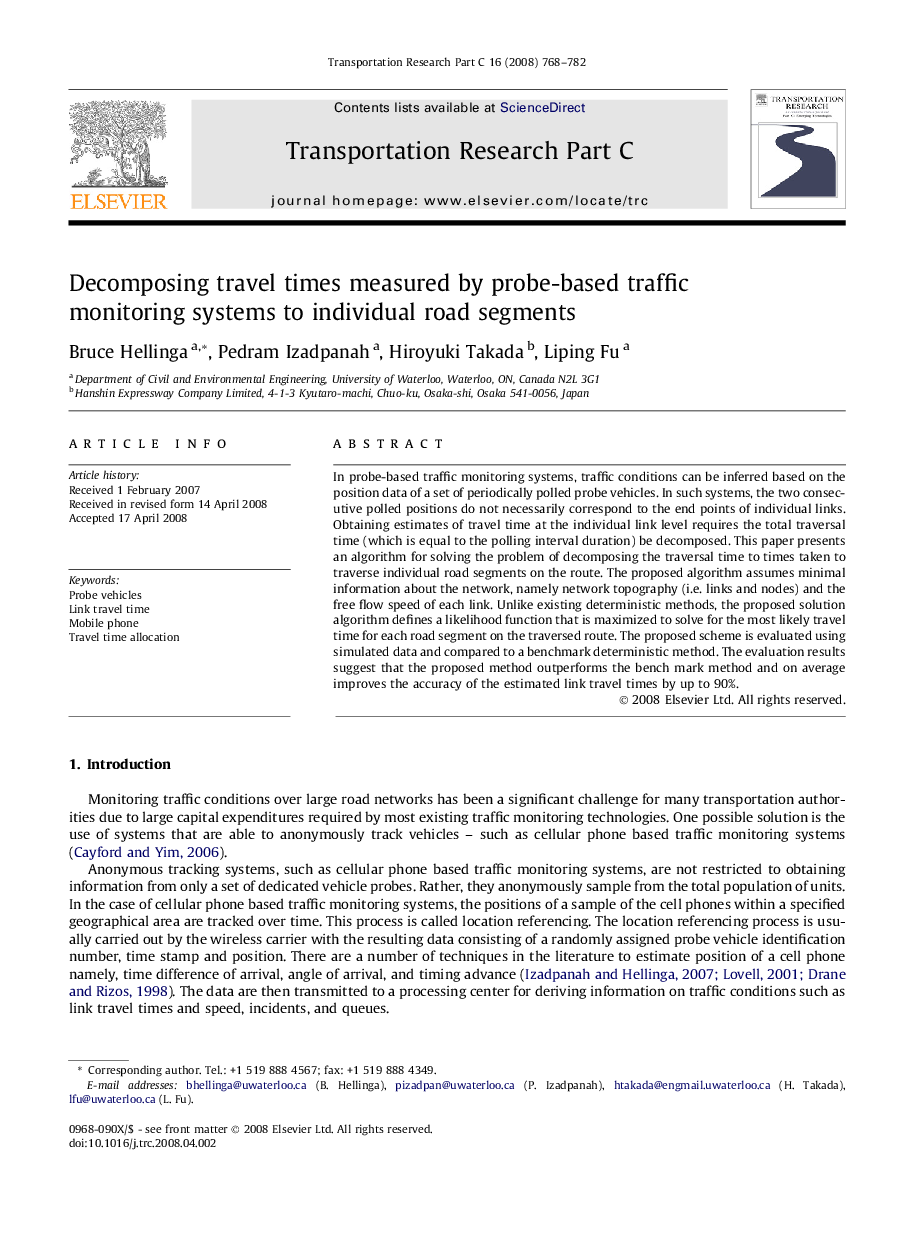| Article ID | Journal | Published Year | Pages | File Type |
|---|---|---|---|---|
| 526682 | Transportation Research Part C: Emerging Technologies | 2008 | 15 Pages |
In probe-based traffic monitoring systems, traffic conditions can be inferred based on the position data of a set of periodically polled probe vehicles. In such systems, the two consecutive polled positions do not necessarily correspond to the end points of individual links. Obtaining estimates of travel time at the individual link level requires the total traversal time (which is equal to the polling interval duration) be decomposed. This paper presents an algorithm for solving the problem of decomposing the traversal time to times taken to traverse individual road segments on the route. The proposed algorithm assumes minimal information about the network, namely network topography (i.e. links and nodes) and the free flow speed of each link. Unlike existing deterministic methods, the proposed solution algorithm defines a likelihood function that is maximized to solve for the most likely travel time for each road segment on the traversed route. The proposed scheme is evaluated using simulated data and compared to a benchmark deterministic method. The evaluation results suggest that the proposed method outperforms the bench mark method and on average improves the accuracy of the estimated link travel times by up to 90%.
